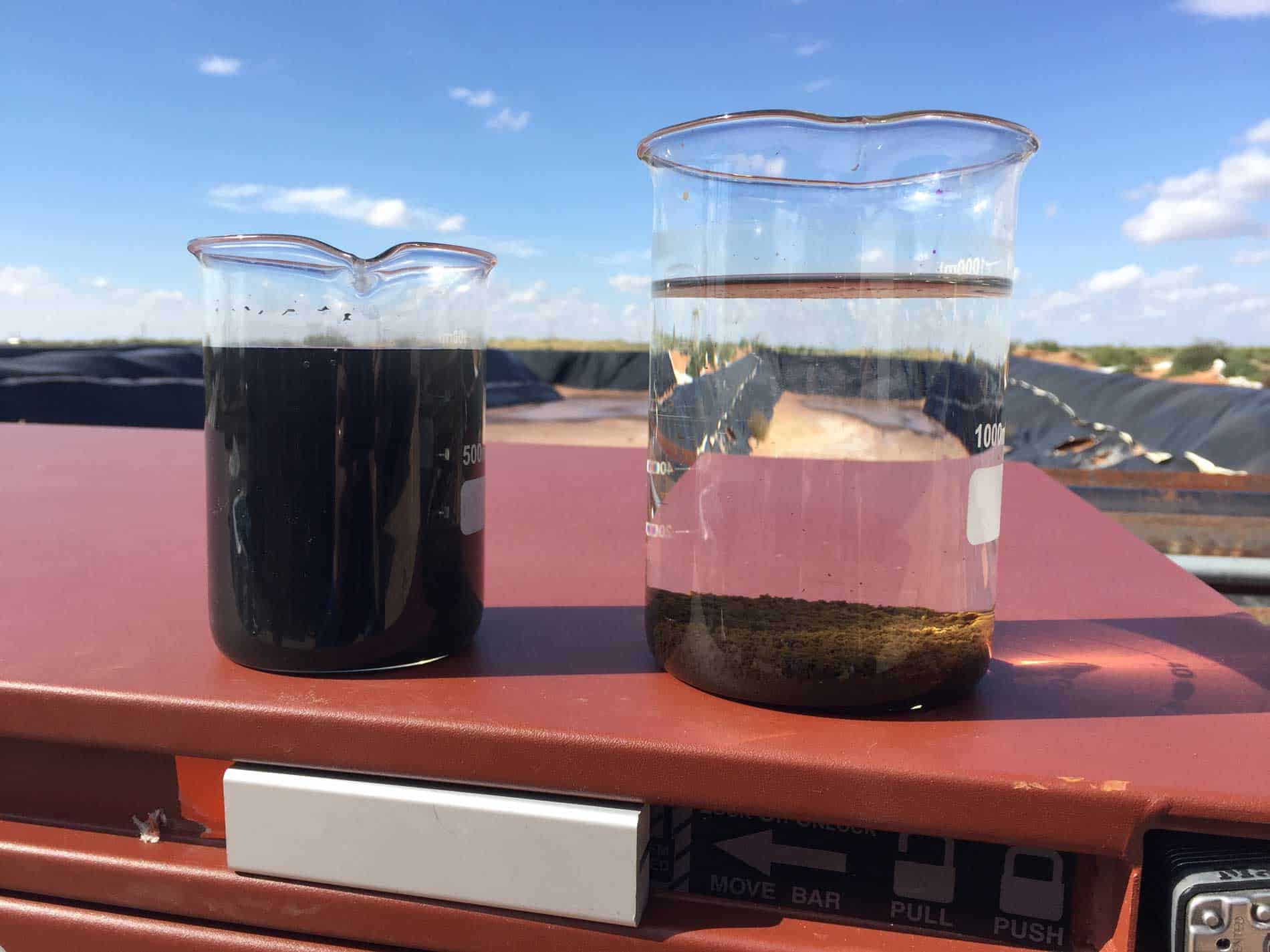EN ISO 9377-2 Mineral Oil Content in Produced Water Test
The EN ISO 9377-2 standard specifies a method for determining the mineral oil content in produced water, which is essential for ensuring compliance with environmental regulations and safeguarding the integrity of downstream processes. This test is particularly relevant to the oil & gas sector where produced water from extraction operations can contain various contaminants including hydrocarbons.
The primary objective of this test is to quantify the amount of mineral oils present in produced water samples, thereby aiding in compliance with international environmental standards such as ISO 9377-2. Produced water management is a critical aspect of oil & gas production, and accurate determination of mineral oil content ensures that waste management practices are efficient and environmentally responsible.
The test involves several steps which include sample collection, preparation, and analysis. Samples must be collected in accordance with the procedures outlined in ISO 9377-2 to ensure accuracy. Once collected, samples undergo solvent extraction, followed by gravimetric determination of the extracted mineral oils. This method is reliable for detecting low concentrations of mineral oil components.
The use of this test is not only confined to regulatory compliance but also extends to quality assurance in production processes where minimizing contamination levels is crucial. For instance, reducing the mineral oil content can enhance the efficiency of subsequent processing steps and reduce operational costs associated with treating contaminated water.
Accurate measurement of mineral oil content helps in optimizing resource utilization by identifying potential sources of contamination early on. This proactive approach can prevent costly remediation efforts later in the production cycle. Additionally, it enables stakeholders to make informed decisions regarding treatment technologies and strategies for managing produced water effectively.
The reliability and precision provided by EN ISO 9377-2 make it an indispensable tool for quality managers, compliance officers, R&D engineers, and procurement teams within the oil & gas industry. By adhering to this standard, organizations can ensure their operations meet stringent environmental requirements while maintaining operational efficiency.
Understanding the nuances of produced water treatment through EN ISO 9377-2 is vital for achieving sustainable practices across all phases of oil & gas production. Proper application of this test ensures that any detected mineral oil contamination can be addressed promptly and effectively, contributing significantly to overall environmental stewardship.
In summary, the EN ISO 9377-2 standard provides a robust framework for measuring mineral oil content in produced water samples, which is crucial for maintaining both regulatory compliance and operational excellence in the oil & gas sector.
Eurolab Advantages
Eurolab, your trusted partner in laboratory services, offers unparalleled expertise in performing EN ISO 9377-2 tests for mineral oil content in produced water. Our team comprises highly qualified professionals with extensive experience in environmental analysis, ensuring that each sample is handled meticulously from collection to final report generation.
- Accurate & Reliable Results: Leveraging advanced analytical techniques and state-of-the-art instrumentation, we deliver precise results every time.
- Comprehensive Reporting: Our comprehensive reports provide detailed insights into your sample's mineral oil content, aiding informed decision-making.
- Regulatory Compliance: Stay ahead of compliance requirements by partnering with Eurolab, who stays updated on the latest regulatory changes.
- Expertise in Sampling: Our trained personnel ensure that samples are collected according to ISO 9377-2 guidelines, ensuring accurate results.
Choosing Eurolab means leveraging our deep understanding of produced water management and stringent testing protocols. We pride ourselves on delivering reliable data that supports robust decision-making processes for clients in the oil & gas sector.
Why Choose This Test
- Achieves Regulatory Compliance: Ensures adherence to international standards like ISO 9377-2, which is mandatory for many industries.
- Enhances Environmental Responsibility: Helps monitor and reduce the environmental impact of produced water discharge.
- Improves Operational Efficiency: By identifying contamination early, you can implement targeted remediation strategies reducing downtime and costs.
- Promotes Sustainable Practices: Minimizing mineral oil content supports long-term sustainability goals by conserving resources and minimizing waste generation.
- Informed Decision-Making: Provides valuable data that informs strategic planning related to water management practices.
- Enhances Reputation: Demonstrates commitment to high environmental standards, enhancing your organization’s reputation among stakeholders.
The EN ISO 9377-2 test is a cornerstone in the pursuit of sustainable oil & gas operations. It offers a reliable method for quantifying mineral oil content, which plays a pivotal role in maintaining regulatory compliance and promoting responsible environmental stewardship.
Use Cases and Application Examples
| Application Example | Description |
|---|---|
| Produced Water Monitoring | Regular testing ensures that produced water meets specified quality standards, preventing contamination of soil and groundwater. |
| Water Treatment Optimization | Data from mineral oil content tests guide adjustments to treatment processes, improving efficiency and effectiveness. |
| Environmental Impact Assessment | Testing helps in assessing the environmental impact of produced water on local ecosystems, guiding mitigation measures. |
| Risk Management | Identifies potential risks associated with high mineral oil content, allowing for proactive management and control. |
| Compliance Verification | Ensures ongoing compliance with regulatory requirements, avoiding penalties and reputational damage. |
| R&D Projects | Supports research initiatives aimed at developing more sustainable water treatment technologies. |
The use cases highlighted above underscore the importance of EN ISO 9377-2 testing in various aspects of oil & gas operations. By leveraging these tests, organizations can enhance their operational efficiency and environmental responsibility significantly.





